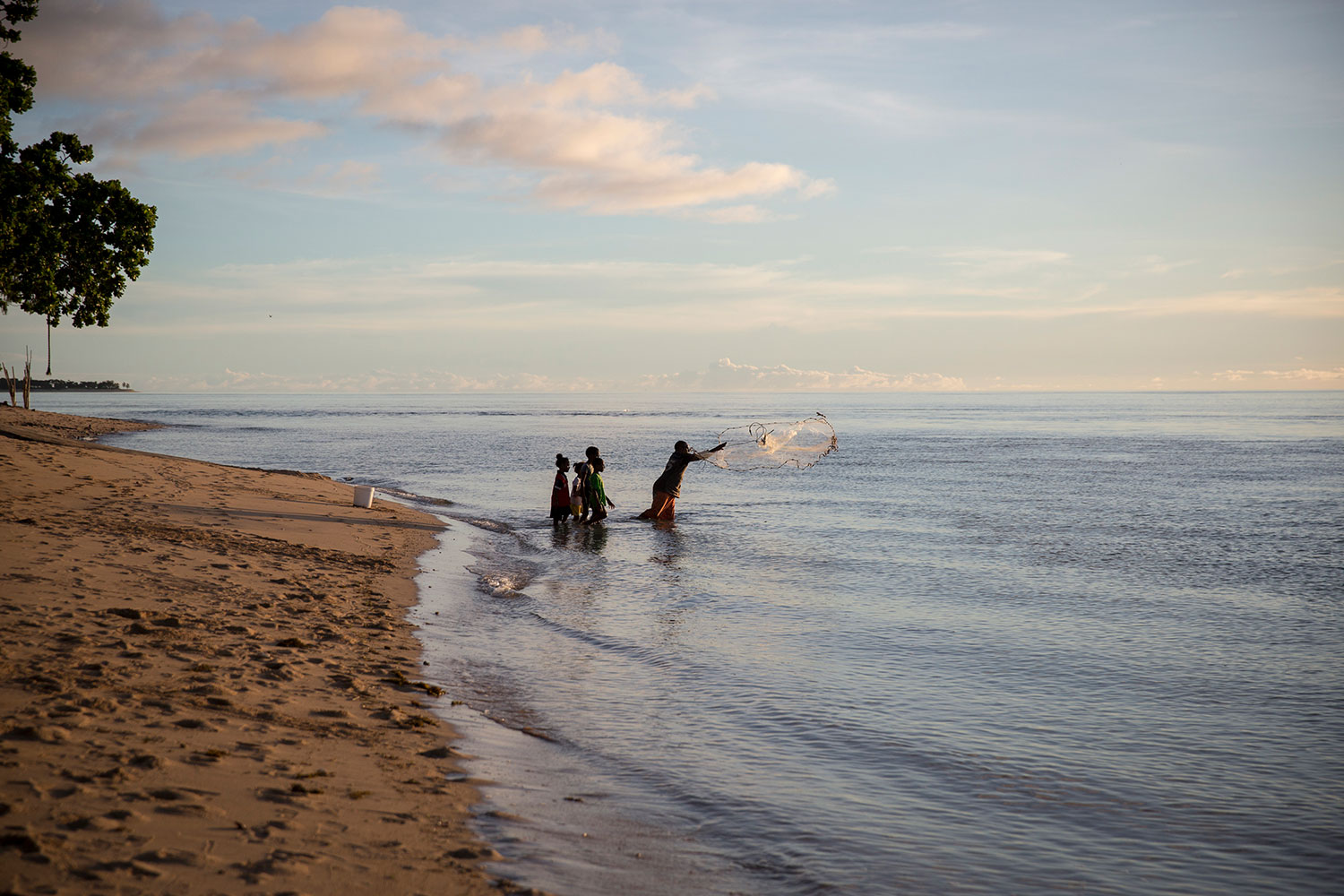Journal
New work
Yumi Sabe: Indigenous Knowledge Exchange
Improving knowledge access, decisions, and outcomes for Aboriginal and Torres Strait Islander communities

Finding and accessing Aboriginal and Torres Strait Islander research online can be a challenge
That same challenge impacts policy makers, researchers, Indigenous community organisations and Indigenous community members alike.
Extensive online searches are often required, and it can be hard to access and use relevant research produced by academic institutions and government agencies.
For policy makers that evaluate and develop programs to improve outcomes for Aboriginal and Torres Strait Islander communities, there isn‘t a central repository for the extensive research and data produced across different government agencies and research groups.
For researchers and community organisations, their projects can be shaped by similar research projects and frameworks by their peers. Accessing what’s been done by others can provide a important foundation, reducing re-work, improving knowledge sharing, and, ultimately, improving community outcomes.
What we’ve learnt is that finding and accessing this research can be just as challenging for researchers and Indigenous community organisations as it is for policy makers. For community members, these challenges can be heightened by not being able to access research findings about their own community.
For a community to have participated in a research project but then have not been given access or ownership of the research or data afterwards isn’t unusual. And when community members are able to access this information, it’s most likely to be categorised and presented in ways that reflect western, colonial knowledge systems.
For community, knowledge systems are about storytelling and connections – all of which starts and ends with Country. Consider the following quote from Songlines (2020):
Everything starts and ends with Country in the Aboriginal worldview. Yet there are not endings in this worldview, nor are there any beginnings…
Country holds information, innovations, stories and secrets – from medicine, engineering, ecology and astronomy to social mores on how to live, and social organisation, including moiety division and kinship systems. It is the wellspring from which all knowledge originates and gives rise to the expression ‘Our history is written in the land’.
By ‘history’ we mean all knowledges: science, humanities and ancestral knowledge, not only what is compartmentalised as Western history.
Pg. 1-2, Songlines
Yumi Sabe Indigenous Knowledge Exchange: an accessible and powerful resource for community-led decision making
In 2021, The Australian Institute of Aboriginal and Torres Strait Islander Studies (AIATSIS) was commissioned by the National Indigenous Australians Agency (NIAA) to, in part, develop a digital platform – now known as Yumi Sabe – that makes research findings more accessible, more contestable and more useable, especially for Aboriginal and Torres Strait Islander communities.
In developing Yumi Sabe, AIATSIS is providing access to Indigenous research data and information at a local level and providing an evidence base for policy makers to design more effective programs and policies.
The aim of Yumi Sabe is to:
- Showcase and support Indigenous knowledge translation.
- Be a powerful resource for Indigenous leadership and community-led decision making.
- Support nation-building through specific nation-based data.
- Support data sovereignty and self-determination.
- Change the narrative on Indigenous data collection, use and ownership.
- Provide links and networks to other data sources and knowledge repositories, including the wide range of information available within AIATSIS.
Yumi Sabe will also hold research outcomes from the Indigenous Research Exchange grants program.
The first release of Yumi Sabe has just launched and is led by Indigenous expertise and underpinned by core principles of Indigenous Data Governance (IDG), Indigenous Data Sovereignty (IDS) and Indigenous Cultural and Intellectual Property (ICIP).
…Songlines are foundational to our being – to what we know, how we know it and when we know it. They are our knowledge system, our library, our archive from which all subjects are derived. Today, in the digital era, this knowledge is accessed in multiple ways.
Pg. 3, Songlines
Partners working to improve outcomes for community
For our part, Folk is stoked to have collaborated with AIATSIS and community stakeholders on the first release of Yumi Sabe.
Following a successful delivery of the first phase, we’re continuing to work with the AIATSIS team and a group of partner organisations to develop the next phase of Yumi Sabe.
Phase 2 has recently commenced, with the next release planned to launch later in 2022. As the second phase progresses in the coming months, we’ll share more of this story.
For consistency and clarity, part of this journal post was reproduced with permission from AIATSIS.
The First Knowledges series is edited by Margo Neale and published in conjunction with the National Museum of Australia and supported by the Australia Council for the Arts.
There are six titles in the First Knowledges series:
Published:
- Songlines (2020, Margo Neale & Lynne Kelly)
- Design (2021, Alison Page & Paul Memmott)
- Country (2021, Bill Gammage & Bruce Pascoe)
To come:
- Medicine & Plants (2022)
- Astronomy (2022)
- Innovation (2023)